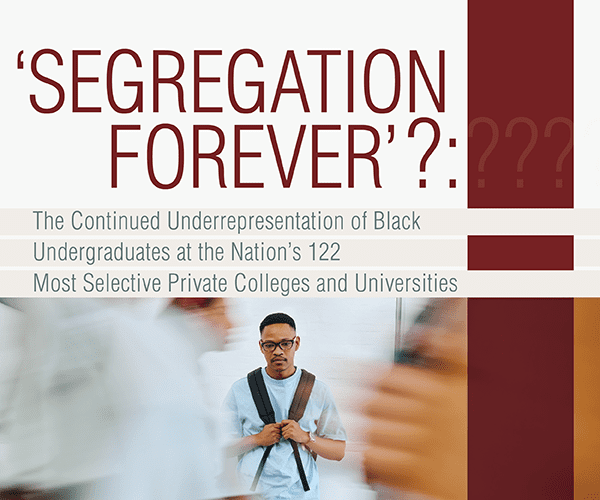 A new report from the Education Trust finds that even with the practice of race-sensitive admissions at selective colleges and universities in the United States for the past half-century or more, Black students remain underrepresented at these elite institutions. The question is now what will happen when race cannot be considered as a positive factor in the admissions process.
A new report from the Education Trust finds that even with the practice of race-sensitive admissions at selective colleges and universities in the United States for the past half-century or more, Black students remain underrepresented at these elite institutions. The question is now what will happen when race cannot be considered as a positive factor in the admissions process.
The report found that the share of Black student enrollment grew at nearly three of every four of these institutions between 2000 and 2020. However, these increases were slight, and overall, very little progress has been made. The average increase among the nearly three quarters of institutions that grew their Black undergraduate student enrollment from 2000 to 2020 was 2.3 percentage points. Among the 26 percent of institutions where Black undergraduate student enrollment declined, the average decrease was 3.7 percentage points. Furthermore, Black student enrollments for the most part failed to represent the demographics of the states from which students came.
The authors note that “the pattern of Black student underrepresentation highlighted in this report is not by chance, but by choice. Many of these institutions have some of the largest endowments of all degree-granting postsecondary institutions in the U.S., which suggests that limited fiscal resources are not to blame for the continued underrepresentation of Black undergraduates among first-time, full-time enrollees. That said, financial resources alone will not be enough to move the needle. Higher education leaders and policymakers must intentionally work to expand access and be held more accountable.”

